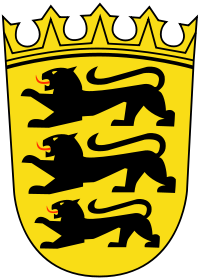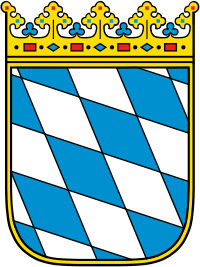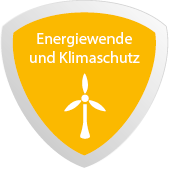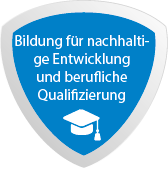Die nachfolgenden Inhalte stammen aus dem Kooperationsprogramm "Interreg Danube Transnational Programme" (Version 1.1).
Kurzbeschreibung
The action supports the building of international (smart) grids, joint regional storage and distribution solutions, the promotion energy efficiency measures and renewable energy production with the goal to increase energy security and the sustainability of the energy system.
Förderziel
Contribute to the energy security and energy efficiency of the region by supporting the development of joint regional storage and distribution solutions and strategies for increasing energy efficiency and renewable energy usage.
Fördergegenstände
Bildung, Qualifizierung, Strategieentwicklung, Konzept-, Teilkonzepterstellung, Vernetzung, Kooperation, Wissenstransfer
Zuwendungsempfänger
Beneficiaries are according to their legal form:
Local, regional and national public authorities/institutions, bodies governed by public law, EGTC, international organisations and private bodies.
Beneficiaries comprise according to their thematic scope among others:
Local, regional and national public authorities and organisations established and managed by public authorities responsible for energy issues, sectoral agencies, regional development agencies, infrastructure and (public) service providers (e.g. for energy supply), grid operators and suppliers, research and development institutions, universities with research facilities, business support organisation (e.g. chamber of commerce, business innovations centres), higher education, education/training centre and school, private enterprises including SME.
Förderfähige Gebietskulisse
Die förderfähige Gebietskulisse in Deutschland umfasst: Baden-Württemberg und Bayern.
Kooperationsmöglichkeiten bestehen mit folgenden Staaten: Österreich, Bosnien und Herzegowina, Bulgarien, Tschechische Republik, Ungarn, Kroatien, Moldawien, Rumänien, Montenegro, Serbien, Slowenien und die Slowakei.
Achtung: Bitte prüfen Sie im Kooperationsprogramm (KP, CP) welche Teilräume der Staaten förderfähig sind.
Art der Unterstützung
Non-repayable grant
Beschreibung
Actions are assigned to Programme-Part "Better connected and energy responsible Danube region"
The following types of action may be financed:
Development of common orientations, frameworks and strategies, development and practical implementation of transnational tools and services, preparation of transnational investments, pilot activities including small-scale investments, development and practical implementation of training and capacity building, accompanying information, dissemination and publicity measures.
List of indicative actions:
- Contribute to the transnational integration of different energy networks and explore the development opportunities for a joint energy infrastructure in the Danube region. Energy interconnection of the Danube region is of utmost relevance in order to ensure its energy security.
- Contribute to the development of Smart Grids in the Danube Region by supporting smart grid policy integration and joint action plans.
- Contribute to regional energy planning and -coordination of transnational relevance across the Danube region within the wider context of EU energy policy in order to diversify energy sources and contribute to the security of energy supplies.
- Improve policy learning and develop practical strategies and solutions to increase the use of renewable energy sources (e.g. biomass, hydro-power, solar/photovoltaic energy, geothermal and wind energy) based on the given potentials. Due attention has to be paid to the Hydropower Guiding Principles developed by the International Commission for the Protection of the Danube River (ICPDR) as they make direct link to the Water Framework Directive requirements.
- Contribute to practical transnational coordination of developing energy efficiency concepts.
- Promote joint efforts to comprehensive spatial planning in order to position adequately generation and transmission capacities.
- Support human resource development and the exchange of related knowledge and experience accompanying policy and technology development.
Zielgruppe
The main target groups are public and private actors who benefit from transnational achievements such as policy integration, knowledge transfer and capacity building, concrete solutions in the diversification of energy sources, higher energy efficiency and more effective energy distribution.
Auswahlverfahren
Information on the assessment process and selection criteria can be found in the application manual which will be available in an application package with each call for proposals. The assessment process comprises of an eligibility check, an quality check and an assessment of the strategic and operational relevance.
Projektauswahlkriterien
Selection criteria can be found in the Cooperation Programme on pp. 125-126. The full list of criteria can be found in the fifth part of the application manual.
Laufzeit
Start der Maßnahme: 01.01.2014
Ende der Maßnahme: 31.12.2023




